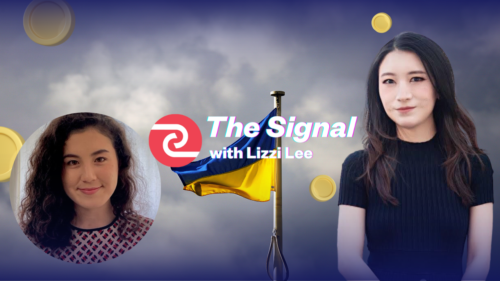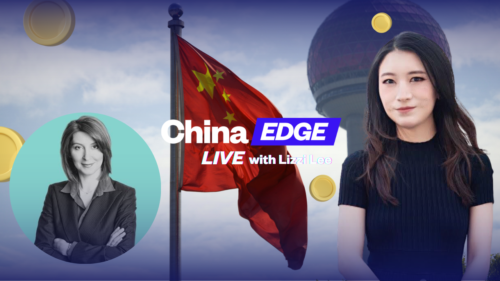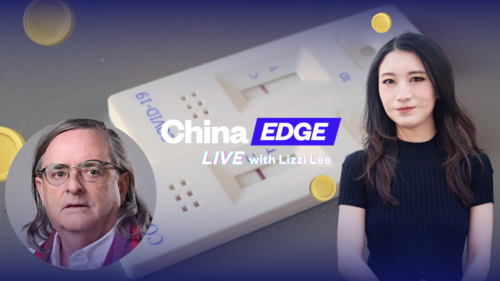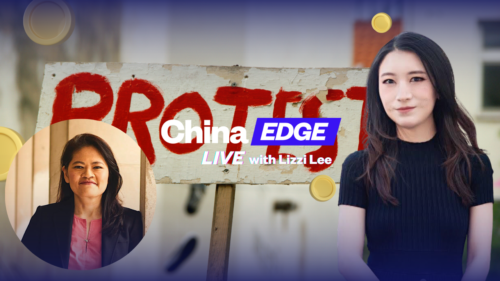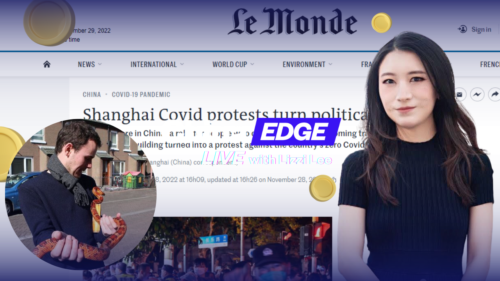EU officials find cracks in Beijing’s support for Putin, while Germany’s Scholz plans trip to China | Live with Lizzi Lee
Noah Barkin, managing editor at the Rhodium Group, discusses Olaf Scholz’s planned trip to China in November, and murmurs among EU officials that Beijing has shifted its tone on Russia.
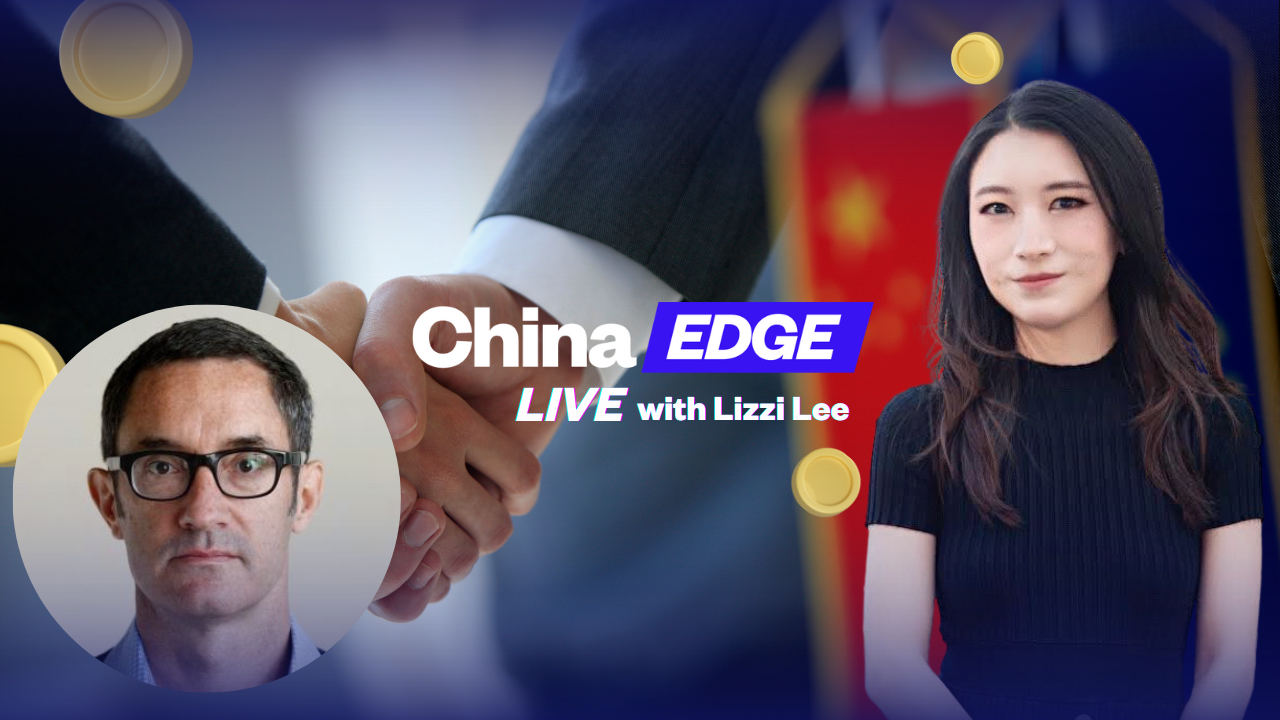
In this episode of Live with Lizzi Lee:
Noah Barkin, managing editor at the Rhodium Group and visiting senior fellow at the German Marshall Fund, explains the internal diktat from Germany on Scholz’s planned visit to China early next month. Barkin also reveals that in private conversations with Chinese diplomats, EU officials have found potential cracks in Beijing’s support for Russia.
Below is a transcript of the video:
Lizzi: Joining me today is Noah Barkin, managing editor at the Rhodium Group and visiting senior fellow at the German Marshall Fund of the United States based in Berlin. Thank you so much for being here with me.
Noah: Hi, Lizzi, good to be here.
Lizzi: So Noah, in your recent issue of “Watching China in Europe,” you introduce the backstory of the German chancellor’s delayed China trip. I wonder if you can give us an update and elaborate on the story there.
Noah: Sure. Well, in mid-September, the chancellery communicated internally that Scholz was going to be traveling to China in early November. A couple of weeks later, it indicated that the trip might not happen at all.
My understanding is that the two sides had some trouble agreeing on the details of the trip. But I did hear just this weekend that the trip is going ahead. Scholz will be leaving on November 3 and returning on November 4. So, a very short trip. And no surprise that Scholz wants to meet with Xí Jìnpíng 习近平. Scholz has been chancellor since December of last year. Hasn’t sat down with Xi Jinping yet.
But the trip, I think, is raising some eyebrows, mainly for two reasons. First, the timing of the trip. Scholz is going to be seeing Xi Jinping in Indonesia at the G20 summit in mid-November. So, some people are questioning why he is going to Beijing so soon after the Party Congress of the Communist Party, where Xi Jinping is expected to win to be confirmed for a third term.
And then the other question, the other big concern that some people have, is that Scholz has signaled, I learned this weekend, that he is going to bring an industry delegation. So, several CEOs with him. Some people are questioning whether this is the right signal he is sending at a time when his own ministers are working on ways to reduce Germany’s economic dependence on China. There’s some concern about the signals that Scholz may be sending on this trip.
Lizzi: As you mentioned in your writing, many EU firms, including German firms, see the Chinese market as vital to their business operation. What is the implication for the EU’s China strategy? Has the EU stance on China evolved since the Ukrainian war?
Noah: Well, it’s not always acknowledged, I think, particularly in the United States. But Europe’s approach to China has been evolving in a tougher, harder direction for the past five years or so.
The EU labels China a systemic rival. Back in March 2019. But certainly, China’s partnership with Russia, its support for the Russian narrative around the war in Ukraine, has had a profound impact on how European capitals view China.
The EU has a very, very close economic relationship with China. I think bilateral trade with something like €700 billion ($678.5 billion) last year. So this is certainly something that shapes the relationship with Beijing.
But European firms have been growing increasingly concerned about the situation in China, zero-COVID policies slowing economic growth, geopolitical tensions. This is also affecting how policymakers view this.
And there’s concern about dependencies. And policymakers here, where I sit in Berlin, as I said, are looking at ways to address concerns about resilience, supply chain vulnerabilities, and corporate dependencies on the Chinese market.
Lizzi: Right. And speaking of the difference between the EU and the United States, as you know, the Biden administration just published a sweeping set of export controls last Friday aiming to cut China off from certain semiconductor chips made with U.S. equipment.
I wonder, are EU countries likely to join forces with the U.S. on imposing similar tech controls on China? What are the talks you’ve been hearing?
Noah: Well, I think the EU has a very different approach to export controls than the United States does.
It’s traditionally taken a country agnostic approach, so not introducing controls that are specifically aimed at a certain country, as the U.S. has been doing in this case, also an approach that is based, and this is the origin of export controls, really based on concerns about proliferation goods that can be used to make military equipment, and weapons of mass destruction.
So, the EU, the big countries in Europe, the big countries that produce advanced technology, still have this approach. I think they’re looking very closely at the U.S. controls that were announced last week. Some countries will be heavily affected by this.
And the Netherlands, for example, which has a large semiconductor manufacturing equipment maker in ASML. So, they will be affected. We’ll have to see what their response is. But I think the EU, certainly the U.S. will be pushing the EU to follow suit.
But there are differences of opinion on how export controls can be used against China.
Lizzi: Right. And in your latest issue of a newsletter, you also note that EU officials are starting to detect cracks in Beijing’s support for [Russia], which is an interesting detail. What is that all about? Can you elaborate a little more on that?
Noah: Well, yes. I mean, what I talked about in my newsletter for GMF last week was conversations between EU and Chinese officials, where new officials detected a bit of a change of tone from their Chinese counterparts.
So not blaming nature for provoking this war, which was a talking point on the Chinese side in the first months of the war, and also expressing concerns about Russia, the possibility that Russia might use tactical nuclear weapons.
I think a clear message, as I understand it, was given by the Chinese side that this would be a nightmare scenario.
Whether this results in a change in China’s position of support for Russia, I think the jury is still out on that, and I think there’s reason to be skeptical that that is the case.
But certainly, in private conversations with the U.S. officials, these officials have detected a bit of a change of tone from the Chinese side.
Lizzi: Fascinating. Looking ahead a little bit, EU leaders are scheduled to discuss their strategy on China at almost the same time as the 20th Party Congress, which is later next week. What is likely on the agenda of the EU meeting? Can you tell us a little more about that?
Noah: Yeah. Well, foreign affairs and EU foreign affairs ministers are meeting in the middle of the month about a week later or several days later. EU leaders will meet. I think it’s still unclear how focused the discussion of EU leaders will be on China.
I think certainly the foreign ministers are going to discuss the EU’s China strategy. I think one issue which will be on the agenda is Taiwan. This is obviously a big issue of concern, not just for Europe.
I think everyone wants everyone here in Europe is very concerned about the aftermath of Chinese reaction to the Nancy Pelosi visit last month. This is all something that will be on the agenda.
I don’t expect the EU to come up with a brand-new strategy or anything like that. I think the EU will be sticking to its Holy Trinity, unveiled in March 2019, which describes China as a partner, an economic competitor, and a systemic rival.
But certainly, concerns about the relationship with China are growing, and the balance of these three prongs of the relationship has shifted more in the direction of competitor and systemic rivals and away from the idea of China as a partner.

